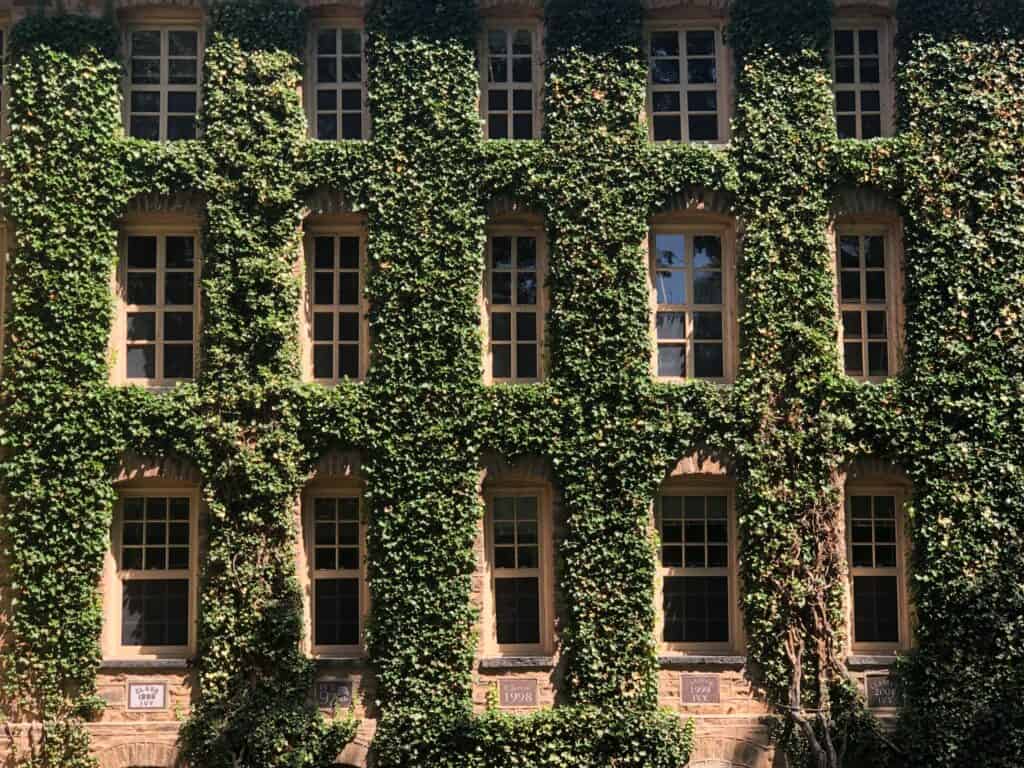During the past few months, after the Supreme Court decision ruling against affirmative action in admission policies at Harvard University and the University of North Carolina, legacy admissions have become a favorite punching bag for pundits.
As I understand the media attention, by eliminating legacy admissions, more openings would be available supposedly to low-income applicants.
Then the word “elite” appeared in headlines. The usage was pejorative. The herd mentality took over.
I question the description of Ivy League schools as elite. Selective, but not elite.
Jim Brown was an elite athlete. LeBron James is an elite basketball player.
Army Rangers and Navy Seals are elite soldiers and sailors.
Meryl Streep and Tom Hanks are elite actors.
American astronauts exhibit elite skills in life-threatening situations.
Nobel prize winners are elite scientists, writers and diplomats.
Students attending Ivy League universities are not elite scholars. I know. I was one. My grades drew no academic plaudits.
Ivy League undergraduates might be driven and ambitious. They might be disciplined and focused. However, they do not differ from their public university counterparts. They are not assured of professional or personal success.
Their parents were not necessarily wealthy and privileged. If so, the expectations were enormous and relentless.
This essay compels me to comment also about legacy admission; to some analysts it is tied to elitism. I expect disagreement. That does not deter me.
I was a legacy at Penn, as was my youngest daughter. We brought loyalty. We realized that a selective university builds upon a foundation laid by legacies and alumni.
Pride was our calling card.
Penn now has removed any preference for legacies. Hopkins, Wesleyan, MIT and Amherst have done the same. As if legacy admissions were a stain on the current perception of Ivy League schools.
The pendulum has swung, foolishly so.
The presumption is that legacy applicants are not fully qualified to gain admission without what many conceive as an unfair advantage. The fallacy in that argument is obvious. An applicant whose parent or grandparent attended a selective school has, based on my anecdotal analysis, equally superior grades, test scores and community activities as the regular applicants.
They deserve admission, even a slight preference, but not eschewal. They bring a heightened sense of community, a desire to contribute to the campus environment.
They understand and appreciate the culture. They represent a subset, along with first generation students, of a viable academic village.
They need no encouragement to love the school and its academic excellence.
They are committed to bettering a university so important to their family—and their non-legacy classmates. They have not pushed aside first-generation students.
Their academic credentials match, if not surpass, those of their classmates. They enhance the school’s reputation. They exhibit no inkling of elitism.
During my 56 years as an actively and avidly involved alumnus, I have met mostly scholarship students. They are exceedingly bright and ambitious. They feel proud and determined to succeed. They turned down full-bore financial aid at a public university in their home state.
They gained admission based on merit, as is true of the legacies. Differentiation is meaningless to them. They too would like their children to attend Penn.
My perspective challenges what many consider a more egalitarian outlook. It runs up against the dismissal of legacy applicants as worthy of admission to an Ivy League university. This argument posits that legacy applicants are advantaged because their parents are presumably wealthy. It conjures the misuse of the word “elite.”
Exclusion of legacy applicants is the current vogue. It is misguided thinking. It represents symbolism instead of substance.
Columnist Howard Freedlander retired in 2011 as Deputy State Treasurer of the State of Maryland. Previously, he was the executive officer of the Maryland National Guard. He also served as community editor for Chesapeake Publishing, lastly at the Queen Anne’s Record-Observer. After 44 years in Easton, Howard and his wife, Liz, moved in November 2020 to Annapolis, where they live with Toby, a King Charles Cavalier Spaniel who has no regal bearing, just a mellow, enticing disposition.



Willard T Engelskirchen says
I hope some of those reading this will read or have read the NYT piece which started it all. For Ivy League schools students 1 in 6 have parents in the top 1% of the income distribution. The advantages of an “elite” education have been documented. Send your child to the best boarding school and then an elite school and good things may happen. The person will get a good education and meet peers from other wealthy families. Status will be preserved. It is all discussed here: https://www.nytimes.com/interactive/2023/07/24/upshot/ivy-league-elite-college-admissions.html
It is interesting that so many of the successes in the entrepreneurial sphere went to top state schools – Michigan, Illinois, UC Berkley and the like.
I understand the writers desire to perpetuate family traditions. But at what cost. We are in an internationally competitive environment. We can’t afford to give a break to those whose family connections would like it.
One of my daughters went to Michigan for graduate school. They offer no advantage to legacy students. She told me once that George W Bush could not have gotten into Michigan’s MBA program – he did not have the grades.
Now, what about breaks for the children of major donors? How do you defend that?
Willard T Engelskirchen says
So, I did a bit more research and came up with a reason donor’s children are accepted at selective schools:
https://www.propublica.org/article/the-story-behind-jared-kushners-curious-acceptance-into-harvard